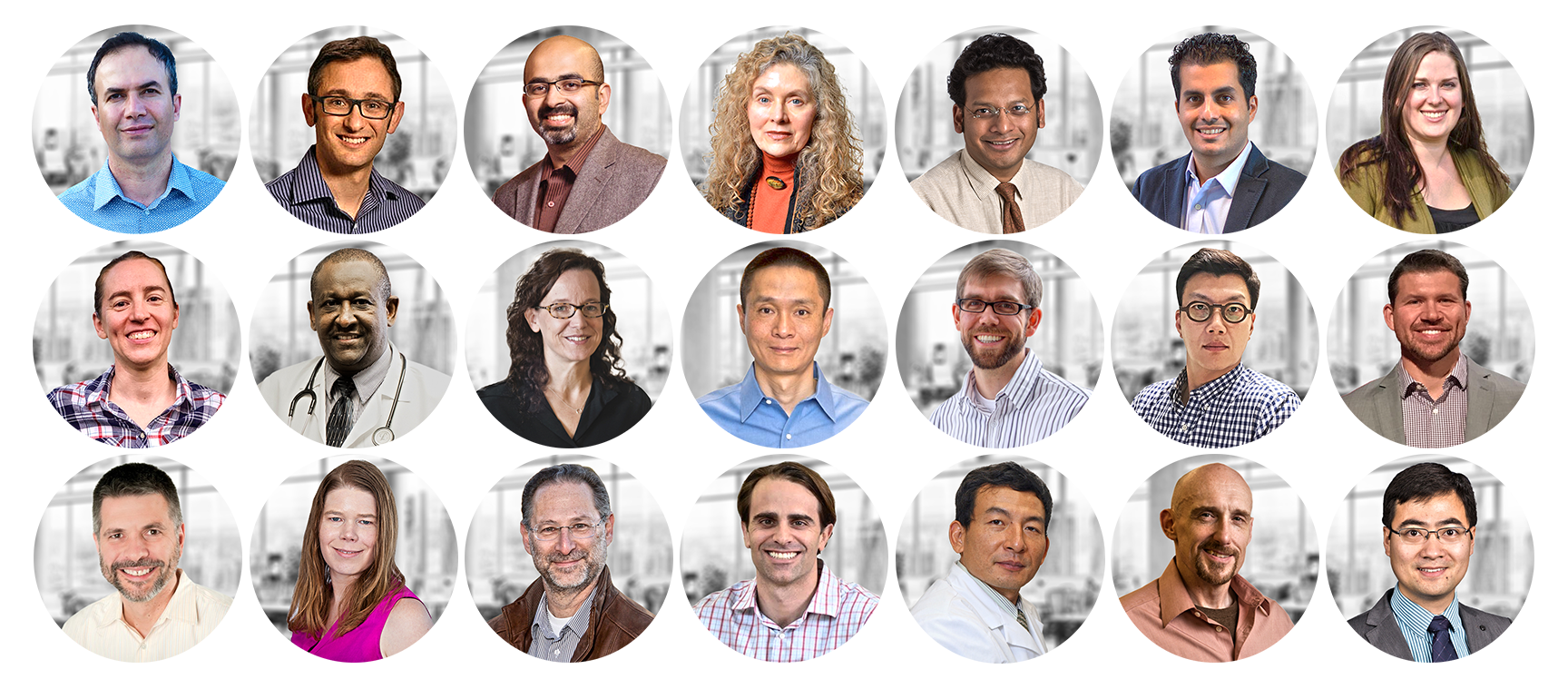
Researchers to Know 2019
Each year, the Illinois Science & Technology Coalition (ISTC) releases detailed metrics benchmarking Illinois’ innovation economy through our Illinois Innovation Index. This includes annual data on the volume of startups founded by students and faculty at Illinois universities, as well as research activity and output across the state’s campuses. While we view these metrics as vital for assessing Illinois’ progress in key economic development areas, taking this big-picture view of innovation can overlook the groundbreaking research being conducted by world-class researchers at our campuses across the state.
This year, to highlight university researchers who have made a significant impact in their field, ISTC is releasing its second annual list of “Researchers to Know” at Illinois’ universities. Though this list is far from comprehensive, it provides a more detailed look at some of the researchers that are driving innovation in the state—from those advancing new treatments in medicine, to those revolutionizing computing and shaping new technologies in the 21st century.
To create this list of distinguished researchers, ISTC reached out to university partners across the state to nominate faculty that have demonstrated excellence in their work. An emphasis was also placed on researchers that have recently achieved milestones, such as publishing an influential paper, receiving national recognition, or commercializing a new innovation. What follows is a cross-section of noteworthy faculty from all corners of the state – each possessing unique research strengths that illustrate the critical role of Illinois’ university research in the national innovation economy.
Catalyst
Stay up-to-date on all things science and technology.
PAST EDITIONS
Advancing Technology:
Fighting Disease:
Increasing Sustainability:
On the Cutting Edge:
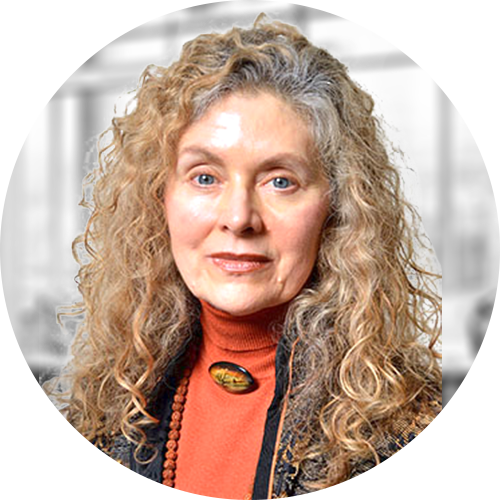
Donna Cox
University of Illinois Urbana-Champaign
PATENT • DATA DRIVEN VISUALIZATIONS • SOFTWARE DEVELOPMENT
Research Description
Donna Cox is a professor of art and design at the University of Illinois at Urbana-Champaign. Prof. Cox focuses on data-driven visualizations, and is a leader in the creation of immersive and accurate depictions of complex scientific concepts. Prof. Cox is the creator of patented software that allows scientists and artists alike to create content for television, movies, and museum exhibits. An artist herself, Prof. Cox’ noteworthy projects include the first visualization of the NSFNET, computer networks constructed to support National Science Foundation initiatives. Prof. Cox’ approach to displaying information is able to quickly communicate advanced topics to the public.
Currently, Prof. Cox is the principal investigator on a variety of research grants and creative commissions. She has served on the National Research Council, and as a juror for the NSF Visualization Challenge. She has also held various chairs and directorships at ACM SIGGRAPH, an international association for computer graphics and interactive techniques. In 2017, the IMERSA (Immersive Entertainment Research Science Art) Summit awarded Cox with its Lifetime Achievement Award for her profound influence on the immersive media community and for public outreach projects in data-driven visualizations.
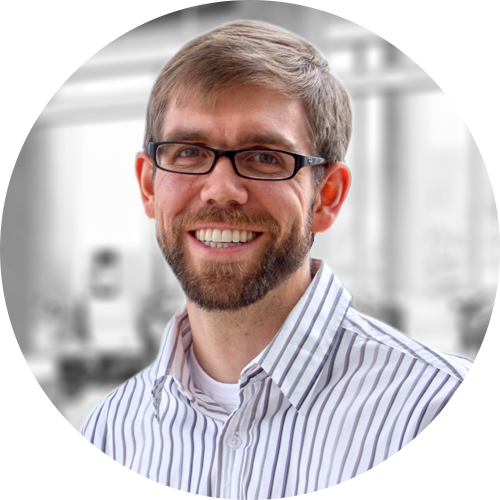
Michael Jewett
Northwestern University
SYNTHETIC BIOLOGY • HEALTH CRISIS MANAGEMENT • EARLY STEM EDUCATION
Research Description
Michael Jewett is a professor of chemical and biological engineering and co-director of the Center for Synthetic Biology at Northwestern University. His work focuses on bio-manufacturing therapeutics, materials, and chemicals. A key feature of his work is the use of cell-free techniques that harness biological systems without intact cells, creating new routes toward on-demand synthesis of medicines, expanding the chemistry of life, portable molecular diagnostics, and education kits. One of his recent discoveries provides methods to manufacture medicines in resource-limited settings, such as remote locations where therapeutics or vaccines are most needed. His lab has also developed “BioBits” kits, designed to teach high school students basic concepts of synthetic and molecular biology, such as antibiotic resistance and CRISPR.
Prof. Jewett received the NIH Pathway to Independence Award in 2009; the David and Lucile Packard Fellowship in Science and Engineering in 2011; the DARPA Young Faculty Award in 2011; the Agilent Early Career Professor Award in 2011; the 3M non-tenured faculty grant in 2012; the Camille-Dreyfus Teacher-Scholar Award in 2015; the ACS Biochemical Technologies Division Young Investigator Award in 2017; and the Biochemical Engineering Young Investigator Award in 2018. He has recently been named a finalist for the 2019 Blavatnik National Award for Young Scientists.
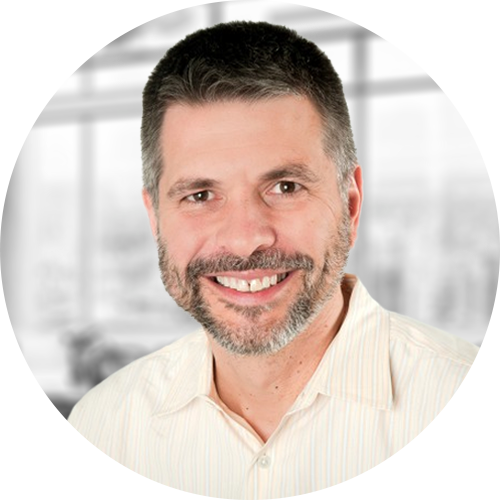
Boris Pervan
Illinois Institute of Technology
NAVIGATION SYSTEMS • ALGORITHMS • AEROSPACE
Research Description
Boris Pervan is a professor of mechanical and aerospace engineering at the Illinois Institute of Technology (Illinois Tech), where he conducts research on navigation systems. Prof. Pervan’s research is focused on navigation techniques for aircraft, in particular maneuvers that require high levels of multitasking and accuracy. He has created a new knowledge base in risk mitigation for flying that informs current techniques for landing aircraft. Prof. Pervan is also a widely recognized expert in using satellites for aircraft navigation, and his discoveries have informed today’s standard protocols set by the Federal Aviation Administration (FAA), the Radio Technical Commission on Aeronautics (RTCA), and the International Civil Aviation Organization (ICAO). Currently, Prof. Pervan is working towards a future where automated aircraft landings are reliable and meet rigorous safety requirements.
Prof. Pervan is a Fellow of the Institute of Navigation (ION) and Editor-in-Chief of the ION journal NAVIGATION. He has published nearly 200 articles on navigation system technology, and has secured approximately $10M in research funding at IIT. He has also received the IIT Sigma Xi Excellence in University Research Award (twice); IIT University Excellence in Teaching Award; IEEE Aerospace and Electronic Systems Society M. Barry Carlton Award; RTCA William E. Jackson Award; a Guggenheim Fellowship; and the Albert J. Zahm Prize in Aeronautics.
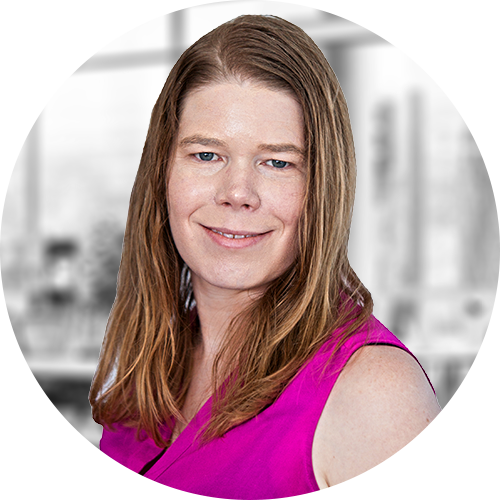
Jennie Rogers
Northwestern University
DATABASES • SECURITY AND PRIVACY • DATA SCIENCE
Research Description
Jennie Rogers is an assistant professor of computer science at Northwestern University’s McCormick School of Engineering. Prof. Rogers’ research interests are in optimizing the performance of database workloads and in privacy-preserving data analytics—particularly for large datasets. Her work specifically concerns records on a single person or entity that are distributed over many private databases. Prof. Rogers’ work has applications for managing the data of institutions that handle large quantities of sensitive data, such as government, hospitals, and schools.
Prof. Rogers has developed a platform called VaultDB, which enables analysts to securely query the records of two or more databases at once using secure computation protocols. This approach keeps data secure by not allowing keeping queries hidden from data providers. The VaultDB team is preparing to pilot this system across several healthcare institutions for privacy-preserving clinical data research. Prof. Rogers has continued funding support for her research from the National Science Foundation (NSF) and is a 2019 recipient of NSF’s Faculty Early Career Development Program (CAREER) award, the foundation’s most prestigious honor for junior faculty.

Matthew Spenko
Illinois Institute of Technology
ROBOTICS • AUTONOMOUS SYSTEMS • TRANSPORTATION
Research Description
Matthew Spenko is an associate professor of mechanical engineering and head of the Robotics Lab at the Illinois Institute of Technology (Illinois Tech). Prof. Spenko is a leader in the area of robotics and autonomous systems, and is widely recognized for his contributions in the areas of electrostatically gripping robots, climbing robots, soft robotics, self driving cars, and unmanned aerial vehicles. Over the years, Prof. Spenko has worked on a wide variety of robots, but always with the same goal in mind: to develop robots that move with the same fluidity as animals do in challenging environments by studying the relationship between design and versatility. Some of his successful robots include the HyTAQ Robot (Hybrid Terrestrial and Aerial Quadmotor) and an autonomous perching quad motor. Prof Spenko is also well known for his development of “soft robots”.
Prof. Spenko’s work has been recognized with significant federal funding. He is currently overseeing projects with over $2.5M in research funding, leading to published articles in several prestigious journals. This work has led Prof. Spenko to participate in national and international panels in the areas of autonomous systems and robotics. Prof. Spenko is a member of the Institute of Electrical and Electronics Engineer and is an associate editor of the Journal of Field Robotics. His work has been featured in popular media such as the New York Times, CNET, Engadget, and DiscoveryNews. Several of his robots are on permanent display in Chicago’s Museum of Science and Industry.
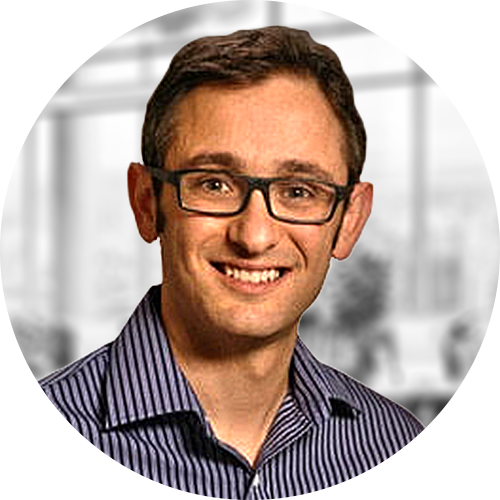
Lev Becker
University of Chicago
CANCER RESEARCH • IMMUNE CELL ACTIVITY • FOUNDER
Research Description
Lev Becker is an associate professor in the Ben May Department for Cancer Research at the University of Chicago (UChicago). Prof. Becker is also on both the Committee on Cancer Biology and Committee on Molecular Metabolism and Nutrition at UChicago. Prof. Becker specializes in immune cell activity and their role in fighting disease. Prof. Becker’s lab apart is the ability to test hypotheses, not only in petri dishes and mice, but also in humans. In addition to traditional bench science, Prof. Becker employs proteomics and bioinformatics approaches to studying the role of macrophages, a type of white blood cell, in disease. Prof. Becker is using his findings to develop immune therapies for cancer, diabetes, and heart disease.
In 2014, Prof. Becker received a Young Investigator Award from the Cancer Research Foundation to fund his cancer research. Prof. Becker is also the founder of Onchilles Pharma, a startup working to move his cancer-related discoveries to the clinical phase. Onchilles has received funding from UChicago’s George Shultz Innovation Fund, an early-stage proof-of-concept venture fund managed by the Polsky Center for Entrepreneurship and Innovation. Prof. Becker is also the co-founder and Chief Science Officer of rMarkBio, a startup that focuses on providing AI software to accelerate innovation and scientific discovery.
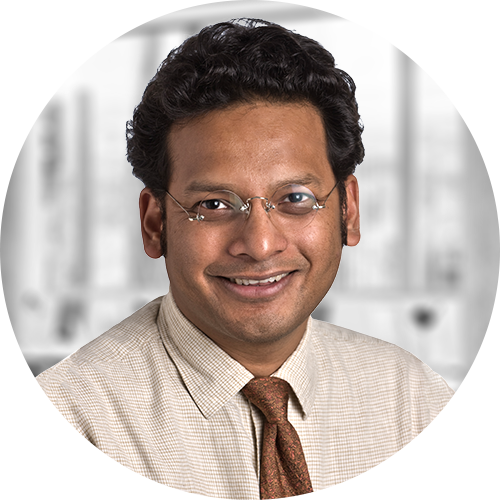
Shubhik DebBurman
Lake Forest College
PARKINSON’S DISEASE • CELL BIOLOGY • GENETIC MUTATIONS
Research Description
Shubhik DebBurman is the Disque D. and Carol Gram Deane Professor of Biological Sciences and Chair of the Biology Department at Lake Forest College. Prof. DebBurman is a cell biologist specializing in neurodegenerative diseases, in particular diseases that happen at old age, especially Parkinson’s disease. Prof. DebBurman’s pioneering research focuses on the brain’s aging processes. His lab has advanced the development of budding and fission yeast systems, adding new understanding of how the brain ages. His research has provided insight into the many factors that affect the aging brain, such as genetic mutations and various forms of disruption in cellular function. Currently, Prof. DebBurman’s research is focused on the neurotoxicity associated with proteins essential to neuron function, as well as several newly discovered genetic mutants of these proteins.
In 2018, Prof. DebBurman was awarded the Chicago Society for Neuroscience Career Achievement Award for his outstanding contributions to neuroscience education. He has directly trained over 100 undergraduates in Parkinson’s disease research since 1998, and his students often go on to receive research grants. Over the course of his career, Prof. DebBurman has received support from the NIH and several Parkinson’s foundations for his research.
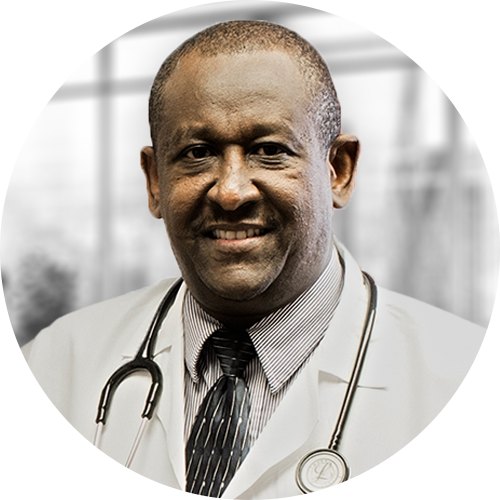
Hatim Hassan
University of Chicago
NEPHROLOGY • KIDNEY STONES • FOUNDER
Research Description
Hatim Hassan is an assistant professor of medicine at the University of Chicago (UChicago). Prof. Hassan studies the factors that lead to kidney stone formation. Prof. Hassan’s research aims to stop the buildup of calcium crystals and a chemical called oxalate, which lead to the growth of kidney stones. Specifically, he is working with molecules secreted by a bacteria called O.formigenes that stimulate the body to expel oxalate. Prof. Hassan’s research has shown that increased levels of the O.formigenes bacteria decrease the occurrence of kidney stones in mice.
Prof. Hassan is the founder of Oxalo Therapeutics, a startup focused on bringing these discoveries to clinical trials. Oxalo Therapeutics has received venture funding, as well as $2.3 million through the NIH Small Business Technology Transfer (STTR) program to further develop its lead compound. The Oxalo team also was a platinum winner at the Boston-based MassChallenge and received $250,000 from UChicago’s George Shultz Innovation Fund, an early-stage proof-of-concept venture fund managed by the Polsky Center for Entrepreneurship and Innovation.
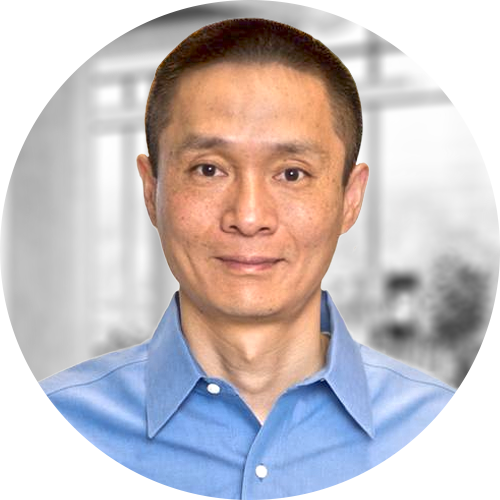
Chuan He
University of Chicago
EPIGENETICS • DYNAMIC RNA MODIFICATIONS • FOUNDER
Research Description
Chuan He is the John T. Wilson Distinguished Professor at the University of Chicago (UChicago) in the Department of Chemistry. He is also a member of the Cancer Research Center at UChicago. Prof. He is a pioneer in the field of epigenetics—the study of changes in organisms caused by the modification of gene expression. His lab discovered the first RNA demethylase, which provided a greater understanding of gene expression and suppression in complex organisms. He continues to explore gene expression and its regulation possible by dynamic and reversible RNA modifications. Prof. He is most interested in how RNA modifications affect the virulence and antibiotic resistance of human pathogens. He is also developing methods to quantify epigenetic markers, which can add additional resolution to genetic diagnostic screenings.
Prof. He has several awards including the Paul Marks Prize in Cancer Research, the Arthur C. Cope Scholar Award, and the Mr. and Mrs Sun Chan Memorial Award in Organic Chemistry. He is also an American Association for the Advancement of Science Fellow for his
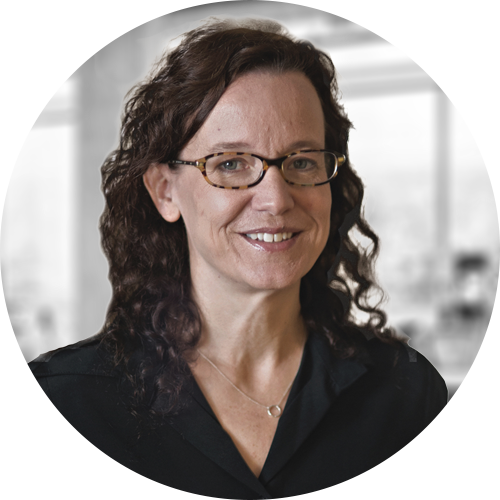
Michelle Hastings
Rosalind Franklin Univeristy of Medicine and Science
PATENT • ANTISENSE OLIGONUCLEOTIDES • DRUG DEVELOPMENT
Research Description
Michelle Hastings is an associate professor of cell biology and anatomy, and director of the Center for Genetic Diseases, at Rosalind Franklin University of Medicine and Science (RFUMS). Professor Hastings’ lab studies the molecular basis of human disease and works to develop disease treatment approaches involving antisense technology. This approach focuses on the treatment of spinal muscular dystrophy, Batten disease, Alzheimer’s, Parkinson’s, Usher syndrome, and cystic fibrosis, among others. Antisense therapy is an emerging field in pharmacology that aims to mitigate the damage a disease can cause at the cellular level.
Prof. Hastings’ lab has been awarded over $3.5 million in funding, including several grants from the NIH, as well as grants from the Michael J. Fox Foundation, the Cystic Fibrosis Foundation, Forebatten Foundation, Batten Disease Support and Research Alliance, Noah’s Hope/Hope4Bridget, Foundation Fighting Blindness, Hearing Health Foundation, Midwest Eye-Banks, and many others. She has published extensively and is the holder of numerous patents on antisense technology for the treatment of disease.
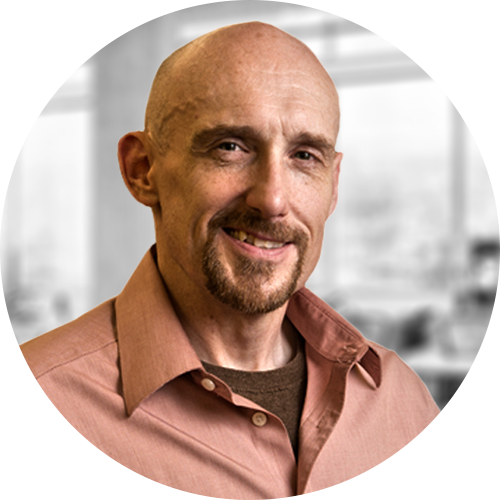
Ken Witt
Southern Illinois University Edwardsville
ALZHEIMER’S • STROKE TEHRAPY • DRUG DEVELOPMENT
Research Description
Ken Witt is a professor of pharmaceutical sciences in the Southern Illinois University Edwardsville (SIUE) School of Pharmacy. Prof. Witt’s research focuses on the development of new drugs for the treatment of Alzheimer’s disease. This research has led Prof. Witt to develop a drug that can target specific receptors in the brain to enhance cognition and mitigate Alzheimer’s disease progression. With guidance from Prof. Witt, the drug discovery program at SIUE has been extremely successful to date, and is currently working to advance a lead drug candidate to clinical phase-I evaluation. Prof. Witt also studies how different dietary fats affect the brain’s microvasculature (i.e. blood-brain barrier). This research informs therapies that help patients who have suffered strokes, as well as delivering drugs to the brain to treat a variety of ailments.
Prof. Witt has been awarded several patents for his novel compounds. He has obtained $3.8 million in external funding for the Alzheimer’s drug discovery program during his tenure at SIUE, including an ongoing $2.65 million grant from the NIH National Institute on Aging. Prof. Witt’s work has also greatly contributed to the funding and advancement of the masters program in pharmaceutical sciences at SIUE.
Increasing sustainability
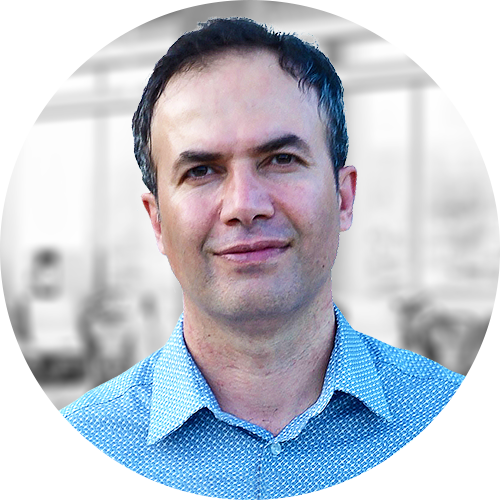
Rahman Azari
Illinois Institute of Technology
INVENTOR • SMART CITIES • SUSTAINABILITY
Research Description
Rahman Azari is an architect, building scientist, and assistant professor of architecture at the Illinois Institute of Technology (Illinois Tech). Prof. Azari’s research focuses on the environmental performance of built environments. His areas of focus include life cycle environmental impacts of buildings; energy efficiency; innovative materials for energy production and carbon sequestration; and urban energy use modeling. Prof. Azari co-invented the “Artificial Leaf-based Façade Cladding (ALFC) Systems”, which helps buildings generate energy while removing carbon from the air using artificial photosynthesis process. He received the prestigious Upjohn Research Grant by the American Institute of Architects (AIA) for this invention.
Prof. Azari serves as director of the doctoral program in architecture, chairs several doctoral committees, and is co-leading the development of a new master’s degree program in high-performance buildings at Illinois Tech. He has also served on scientific and organizing committees of several international conferences. In addition, he has been appointed ex-officio member to the board of directors of the Architectural Research Centers Consortium (ARCC). Prof. Azari was guest editor of a 2018 special issue of the journal of Energy and Building, dedicated to embodied energy and carbon efficiency.
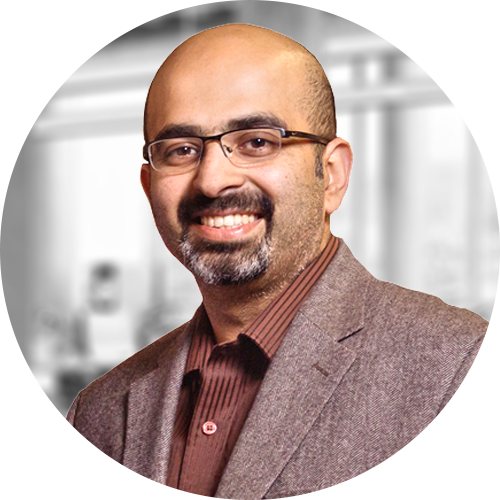
Girish Chowdhary
University of Illinois at Urbana-Champaign
ADAPTIVE AUTONOMY • AGRICULTURAL TECHNOLOGY • FIELD-ROBOTICS
Research Description
Girish Chowdhary is an assistant professor in agricultural and biological engineering and aerospace at the University of Illinois at Urbana-Champaign (UIUC), where he is also Director of the UIUC Distributed Autonomous Systems Lab. Prof. Chowdhary’s research focuses on theoretical insights and practical algorithms for adaptive autonomy, with applications for agricultural field-robotics and Unmanned Aerial Systems (UAS). He is working to create software that allows robots to learn and adapt, with applications in agriculture, road-networks, energy, and defense. Prof. Chowdhary has also led the development and flight-testing of more than 10 Unmanned Aircraft Systems (UAS).
In addition to his academic research, Prof. Chowdhary’s technologies are the driving force behind EarthSense, an agricultural robotics startup he co-founded at the University of Illinois Research Park. EarthSense has been named to SuccessfulFarming’s 8 AgTech Start-Ups, Worth Watching in 2019 and AgFunder’s 12 Startups to Watch. Prof. Chowdhary has also authored over 90 peer reviewed publications in various methods of decision making that can be applied to UAS including, sequential decision making and mission planning, aircraft system identification, distributed sensing and inference, Bayesian nonparametric statistical methods as learning for control, and vision aided navigation. Prof. Chowdhary was recently awarded the 2015 Air Force Office of Scientific Research Young Investigator Research Program grant and the 2015 Ward Memorial Award..
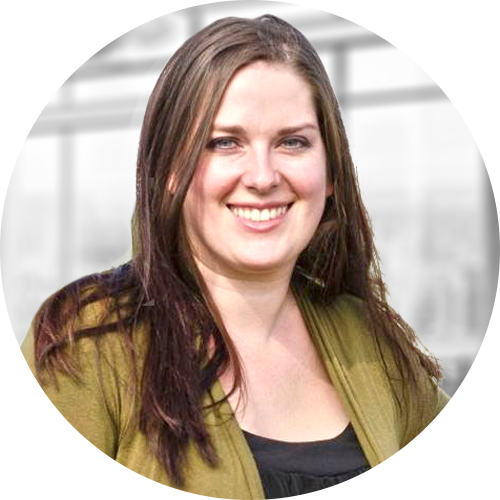
Angela Green-Miller
University of Illinois at Urbana-Champaign
FOUDNER • ANIMAL SCIENCES • INDUSTRIAL DESIGN
Research Description
Angela Green-Miller is an associate professor of agricultural and biological engineering and animal sciences at the University of Illinois at Urbana-Champaign (UIUC). Prof. Green’s research focuses on animal husbandry—the science of breeding and caring for farm animals—including best practices and animal health, in order to address production and sustainability challenges. She uses a systematic “speaking animal” approach to explore the interactions of animals with their environment. Prof. Green has identified five key areas that are often priorities for producers: food, air, water, health, and weight. She is using these areas as markers of production management for her predictive algorithms, which promote animal welfare and the efficient use of resources. Prof. Green is developing new software to allow producers to safeguard animal welfare, while also minimize the amount of resources they use, leading to a more sustainable method of production.
Prof. Green is working to commercialize her software. She is co-founder of TellTail, a startup leveraging software to offer management solutions for pork producers. In 2019, TellTail received the Edwin Moore Family Agricultural Innovation Award, which honors University of Illinois entrepreneurs focusing on agricultural innovations.
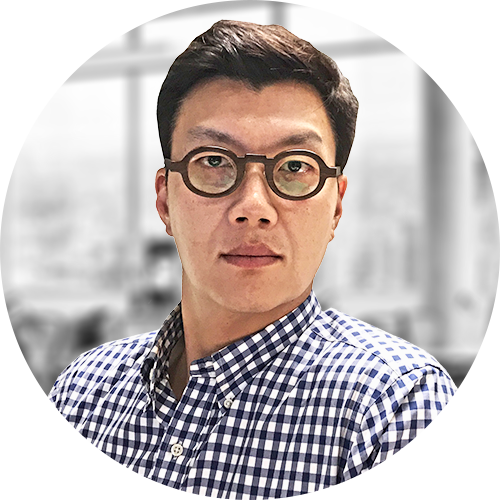
Jin Ho Jo
Illinois State University
RENEWABLE ENERGY SYSTEMS • SUSTAINABLE BUILDINGS • ENERGY OPTIMIZATION
Research Description
Jin Ho Jo is an associate professor of technology at Illinois State University (ISU). Prof. Jo’s research focuses on the use of renewable energy systems and sustainable building strategies to reduce negative impacts of urbanization. In collaboration with the National Renewable Energy Laboratory (NREL), Prof. Jo has developed a research framework that allows colleges and universities to determine the best sustainable energy alternatives that can be implemented.
Prof. Jo participated in the U.S Department of Energy’s Visiting Faculty Program at NREL in Golden, Colorado in 2016. Prof. Jo’s research with the National Renewable Energy Laboratory and the Midwest Renewable Energy Association has been awarded with grants from the Department of Energy, allowing for further interdisciplinary research and software development. Prof. Jo’s research has been published in a variety of energy and sustainability journals.
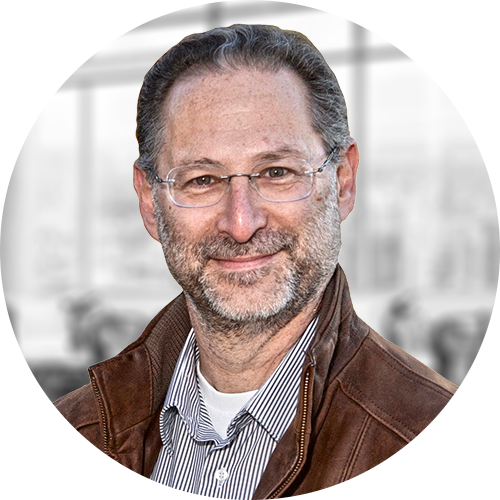
Reed Scherer
Northern Illinois University
CLIMATE CHANGE • MICROPALEONTOLOGY • ANTARCTIC ICE SHEETS
Research Description
Reed Scherer is Distinguished Research Professor in the Department of Geology and Environmental Geosciences at Northern Illinois University (NIU). Prof. Scherer studies the microscopic fossils of plankton around and beneath the Antarctic ice sheet in order to study its history and stability. He has traveled to Antarctica for many expeditions, drilling through the thick ice sheet and into the seafloor around the continent. Prof. Scherer and his team study diatom fossils which can be used to track ice sheet collapses before human influence. This research serves as a guide for forecasting future ice retreat, accelerated by ongoing rapid warming.
Internationally recognized for his polar research, Prof. Scherer has published dozens of widely cited papers in top journals and obtained millions in external grant funding to study the climate impact of human activities in Antarctica. He has trained many students who have gone on to academic and government science careers and published descriptions of 24 previously unknown types of diatoms and other single-celled organisms. Prof. Scherer is a popular teacher and has represented NIU as a frequent national and regional media contributor on the issue of climate change.
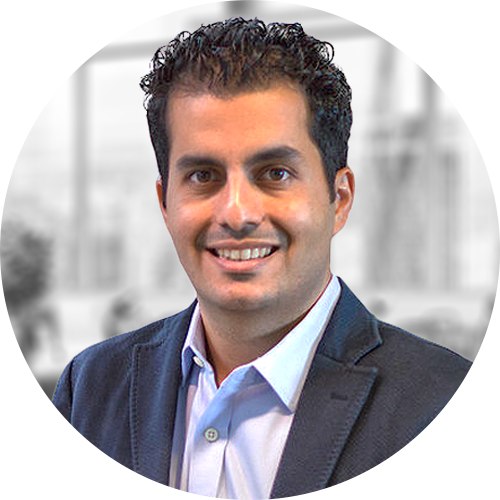
Mani Golparvar-Fard
University of Illinois Urbana-Champaign
FOUNDER • INVENTOR • CIVIL ENGINEERING
Research Description
Mani Golparvar-Fard is an associate professor of civil engineering, computer science, and technology entrepreneurship at the University of Illinois at Urbana-Champaign (UIUC). He is a faculty Entrepreneurial Fellow, Excellence Faculty Fellow, and the Director of the Real-time and Automated Monitoring and Control (RAAMAC) lab at UIUC. Prof. Golparvar’s research is focused on computer vision, machine learning, and building information modeling (BIM). He has developed software that integrates BIM and project scheduling to visually track progress, analyze efficiency, and predict delays at construction sites. This work has established Prof. Golparvar as a national leader in the application of data analytics to construction sites.
Prof. Golparvar is COO and co-founder of Reconstruct Inc., a startup that has successfully commercialized software that produces visual data analytics at construction projects. The underlying technology is licensed from UIUC and has been recognized with several awards, including an Innovation Award from Turner Construction Company in 2015 and by World Economic Forum as the most innovative startup company of 2016. Prof. Golparvar is the recipient of the 2018 Walter Huber Research Prize from the American Society of Civil Engineers (ASCE), 2017 Young Professional Award from Engineering News-Record (ENR), 2016 ASCE Dan H. Halpin Award for Scholarship in Construction, 2013 ASCE James R. Croes Medal for innovation in Civil Engrg, 2013 FIATECH CETI award for outstanding research. He has also received the best paper award from the ASCE Journal of Construction Engineering and Management in 2012, and numerous other conference paper awards.
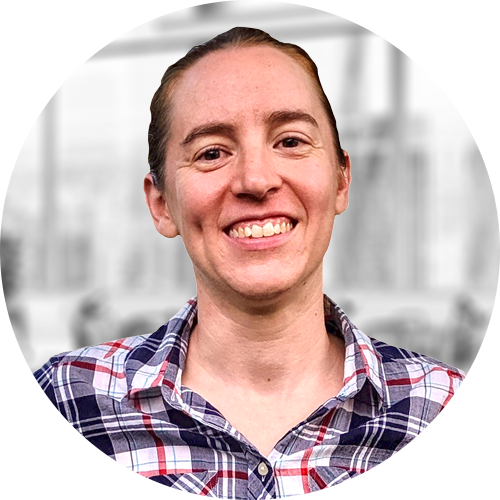
Allison Harris
Illinois State University
PARTICLE PHYSICS • VORTEX BEAMS • FEW-BODY INTERACTIONS
Research Description
Allison Harris is an associate professor of physics at Illinois State University. Prof. Harris studies charged particle collisions with atoms in order to understand the fundamental physics of their interactions. Her work focuses on recently discovered electron wave forms, known collectively as vortex beams or twisted particles. In two recent publications, Prof. Harris presented the first calculations for ionization using twisted particle projectiles and calculated the recovery time for damaged twisted particles to repair themselves. These unique particles offer new opportunities for rotation and control of nanoparticles, improved resolution in electron microscopy, as well as the study of fundamental atomic properties.
Prof. Harris recently received a second consecutive grant from the National Science Foundation for the study of twisted particles, and has received numerous research and teaching awards at Illinois State University. Prof. Harris has published 29 peer-reviewed papers, including 13 with undergraduate student co-authors. She has served on the executive committee of the Gaseous Electronics Conference and was recently appointed to the local organizing committee of the International Conference on Photonic, Electronic, and Atomic Collisions.
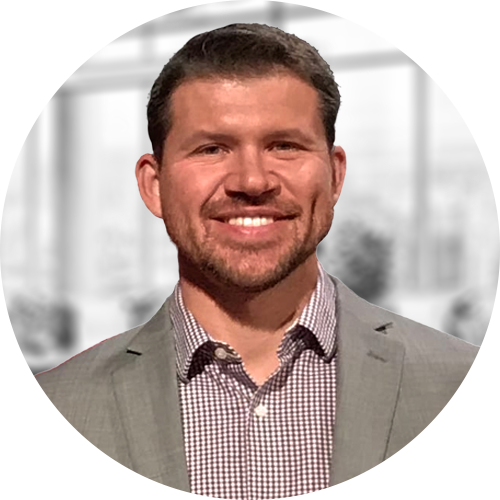
Joshua Leonard
Northwestern University
IMMUNOTHERAPY • DRUG DEVELOPMENT • CANCER TREATMENT
Research Description
Joshua Leonard is an associate professor of chemical and biological engineering at Northwestern University. Prof. Leonard’s work spans synthetic biology, protein engineering, experimental systems biology, and computational biology. He seeks to develop cell-based “devices” that can directly deliver medical treatments to specific areas of the body. Prof. Leonard’s research has become the framework in developing alternative treatments for many diseases. One application is the treatment of cancer. Cancerous tumors turn off our bodies’ “natural killer cells”. Prof. Leonard research led to the discovery of a general method for “rewiring” immune cells, reviving killer cells in cancer patients. This discovery allows for a new method of treatment that strengthens and works with our immune system to treat cancer.
Prof. Leonard was elected Vice Chair of the American Institute of Chemical Engineering’s Food, Pharmaceutical and Bioengineering Division, and will be ascending to Chair next year. He was invited to participate in Vice President Biden’s Cancer Moonshot Initiative workshop on “Systems and Synthetic Biology for Designing Rational Cancer Immunotherapies,” and is the associate editor of the Biochemical Engineering Journal. Prof. Leonard has also been recognized by Northwestern for his excellence in teaching and faculty mentoring, receiving the Karl Rosengren Faculty Mentoring Award and Charles Deering McCormick Professor of Teaching Excellence in 2018.
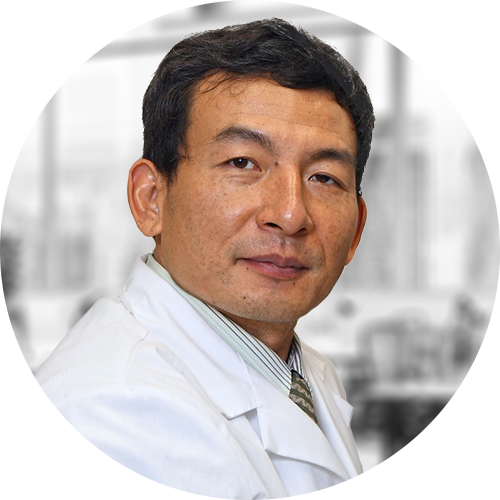
Z. Jim Wang
University of Illinois at Chicago
FOUNDER • CHRONIC PAIN • DRUG DEVELOPMENT
Research Description
Zaijie “Jim” Wang is a professor of pharmacology and pharmaceutics at the University of Illinois at Chicago (UIC). He is associated with various departments and centers at UIC, including the Department of Biopharmaceutical Sciences, Center for Biomolecular Sciences, Program for Collaborative Research in the Pharmaceutical Sciences, Cancer Center and Sickle Cell Center. A key objective of his laboratory is to understand the mechanisms leading to chronic pain, opioid tolerance, and addiction, as well as opioid-induced increased sensitivity to pain. With his research, Prof. Wang is working to develop novel drugs that can replace opioids and treat pain caused by sickle cell disease and chemotherapy.
Prof. Wang is renowned for his work addressing biological questions at the molecular, cellular, genetic, epigenetic and systems levels. His work has been continuously funded by the National Institutes of Health (NIH) for nearly 20 years. Recently, he received a MIRA (R35) grant for $4.6M for his research of chronic pain in sickle cell disease. He is a favored keynote speaker at international conferences, and a permanent member of the NIH Somatosensory and Pain Systems Study Section appointed by the Director of the NIH. Prof. Wang has been named a Fellow of the American Association of Pharmaceutical Scientists.
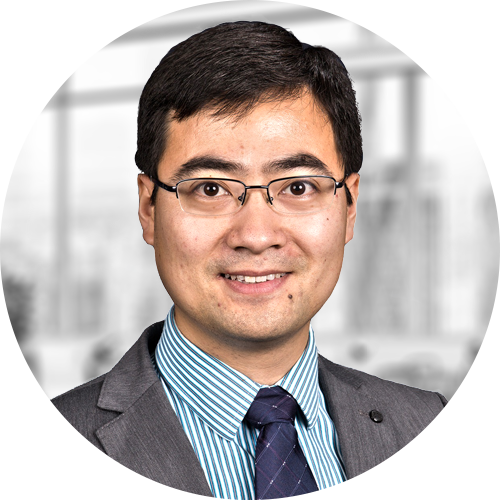
Jie Xu
University of Illinois at Chicago
FOUNDER • MICROFLUIDS • BIOSENSORS
Research Description
Jie Xu is an assistant professor of mechanical and industrial engineering at the University of Illinois at Chicago (UIC). Prof. Xu is also the founder and director of the Microfluidics Laboratory at UIC. Microfluidics deal with the behavior and control of fluids constrained to a submillimeter scale. In his lab, Prof. Xu studies microfluidics to develop new fluidic chips, biosensors, and micro and nano transport devices. His discoveries have the potential to address pressing problems in energy, the environment, and health (especially for those with limited access to advanced medical facilities). For example, Prof. Xu is working on microfluidic biosensors that provide a cost-effective, user friendly, and reliable tool to detect pathogens in our food supplies and even help in early cancer detection.
Prof. Xu has an exceptional funding record in his early career, receiving both a DARPA Young Faculty Award and the prestigious NASA Early Career Faculty Award—along with other NSF and internal UIC awards. In total, his work has raised nearly $2M in support. In addition to his funding success, Prof. Xu has published prolifically, with over 70 peer-reviewed journal articles, and over 2,000 citations.

